Idaho murders suspect Bryan Kohberger’s grad program had access to ‘crime lab’ with camera streams: insider
EXCLUSIVE: PULLMAN, Wash. – Bryan Kohberger’s doctoral program at Washington State University maintains access to a “crime lab” database of police bodycam videos as well as live streams from security cameras on and off campus, an insider told Fox News Digital.
The programs are referenced on the school’s public website and are used to study policing and the “complex social interactions” between patrol officers and the people they encounter, as well as other government functions.
The source, who works for the university and has direct knowledge of the department, is warning that the research tools, in the wrong hands, could have allowed a suspected killer to view unredacted crime scene images, potential videos of death and even live streams of surveillance cameras with remote controls that allow the viewer to zoom in on faces.
“I don’t think that any amount of positive research that has come out of this department is worth the risks of letting a wolf in the henhouse,” the insider said. “They are all obsessed with crime and criminals – you’d have to be to have a Ph.D. in criminology – but sometimes that obsession goes to other levels and attracts this kind of madness.”
UNIVERSITY OF IDAHO STUDENT STABBINGS TIMELINE
WSU’s Complex Social Interaction Lab (CSI Lab) and Division of Governmental Studies and Services (DGSS) are research entities on campus.
The DGSS recently unveiled a report after examining five years worth of data on Washington State Police stops for evidence of bias. The results were “mixed.”
But alarming, according to the source, is the DGSS’s access to live streams of security cameras around Pullman. One example taken from the command center shows multiple screens of live feeds, including one of a person in a car in a restaurant parking lot near Greek Row.
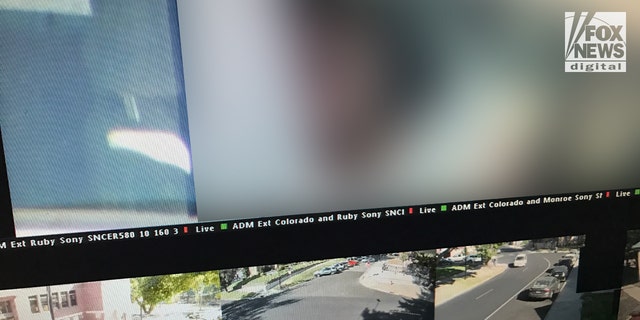
IDAHO MURDERS SUSPECT BRYAN KOHBERGER WILL CHALLENGE EVIDENCE, LAWYER SAYS
More than five police departments share bodycam video with the CSI Lab database, according to the university. One of them is the Pullman Police Department, according to the source, who could not confirm the additional agencies.
Students can apply for access to the CSI Lab online by filling out a brief questionnaire.
It’s unclear whether Kohberger had gone through this process, but the CSI computers are located in the same building and on the same floor as the graduate offices, according to the insider, who pointed the locations out on a map. The bodycam terminals are separated from the department’s main conference room by a soundproofed wall and communicate with the internet only through limited pathways.
A school spokesman did not immediately respond to a request for comment.
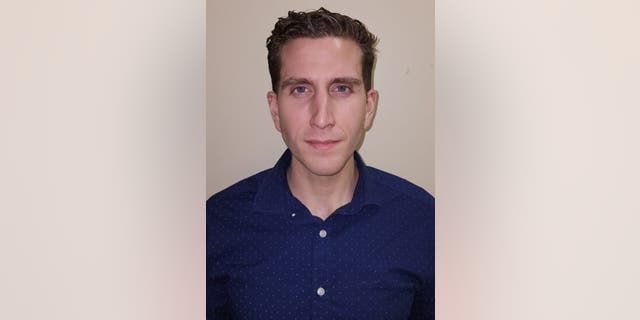
Moscow police told Fox News Digital that the department does not share its bodycam archive or any live security camera streams with the researchers at WSU.
Public records show MPD officers visited the victims’ home at least three times during the same semester as Kohberger was attending WSU, resulting in the creation of several body and dashcam videos showing interactions with the victims.
WATCH: Bodycam footage shows officers responding to Idaho home over noise complaint weeks before students were murdered
And at least two of the victims were seen on a public Twitch stream ordering food on their way home, just hours before the murders.
IDAHO MURDER VICTIMS’ ROOMMATE HEARD CRYING, SAW MAN IN MASK NIGHT OF KILLINGS: COURT DOCS
Pullman, Washington, and Moscow, Idaho, are about 10 miles apart.
The WSU CSI Lab program has researched police use-of-force and other analytics gathered from tens of thousands of hours of bodycam video.

The insider also sees a problem in the advanced study of crime for academia’s sake.
“I’ve always been skeptical of the research this department has done, especially the folks that don’t go on to solve real world crime in law enforcement but stick around in academia and live and breathe this stuff on taxpayer dollars,” the insider said. “And what does it really amount to? Basically just neutering police more and more every day. It’s just sickening after all this.”
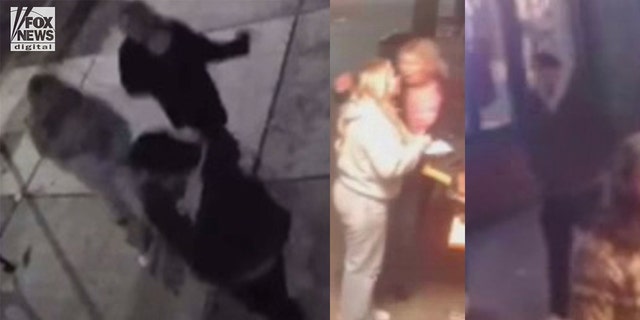
If Kohberger, who in his high school yearbook indicated a desire to join law enforcement, still intended to do so, it’s unclear when he planned to start. After obtaining a master’s in criminal justice from DeSales University last year, the 28-year-old applied to the Ph.D. program in Washington.
He also has an alleged background of substance abuse, including heroin, according to past acquaintances.
After getting clean, he spent the past several years surrounding himself with experts on the macabre.
While at DeSales University, Kohberger studied under an expert on serial killers, Dr. Katherine Ramsland, who co-wrote a book with the BTK Killer, Dennis Rader. Rader killed 10 people between 1974 and 1991.
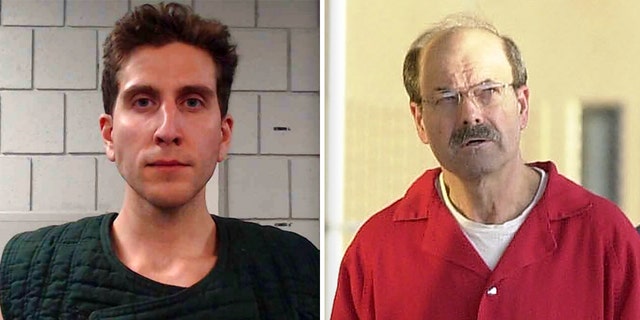
At WSU, he studied under Dr. Melanie-Angela Neuilly, who in her CV describes herself as specializing in “homicide, violent deaths, [and] violence as a public health concern,” among other topics.
Kohberger in recent months applied for an internship with the Pullman Police Department, according to an affidavit in support of the warrant for his arrest on four first-degree murder charges and a count of burglary for allegedly entering a home with the intent to kill.
“Kohberger wrote in his essay he had interest in assisting rural law enforcement agencies with how to better collect and analyze technological data in public safety operations,” the statement reads.
The CSI Lab aims to, among other things, “use software to analyze police footage” and “give results and guidance to better police departments” – while getting “hands-on experience in Complex Social Interactions” for WSU students.
IDAHO MURDER SUSPECT KOHBERGER’S PENNSYLVANIA CLASSMATES SAY HE WAS ‘BRIGHT,’ AWKWARD, BULLIED IN SCHOOL

Joseph Giacalone, an adjunct professor at John Jay College of Criminal Justice in New York and a retired NYPD sergeant, told Fox News Digital Friday that programs like the CSI Lab support legitimate research and foster relationships between students and the law enforcement community.
“We’ve had nurses that have gone on to become serial killers and using the knowledge that they gained in nursing school to do it,” he said. “The overwhelming majority of the individuals that take these classes intend to do good with it.”
THE IDAHO STUDENT MURDERS
On Nov. 13, 2022, Kohberger allegedly drove from his Pullman apartment to King Road, where the four victims had returned hours earlier after a night of college partying.
Just after 4 a.m., he allegedly snuck inside and massacred Madison Mogen, 21, Kaylee Goncalves, 21, Xana Kernodle, 20, and Ethan Chapin, 20. The three young women lived in the house, which police allege Kohberger had cased out on at least 12 prior occasions.

Chapin, Kernodle’s boyfriend, was staying the night. Kohberger then allegedly returned to the crime scene five hours after the slayings.
Authorities have indicated most of them were asleep at the start of the massacre, although Kernodle may have been awake.
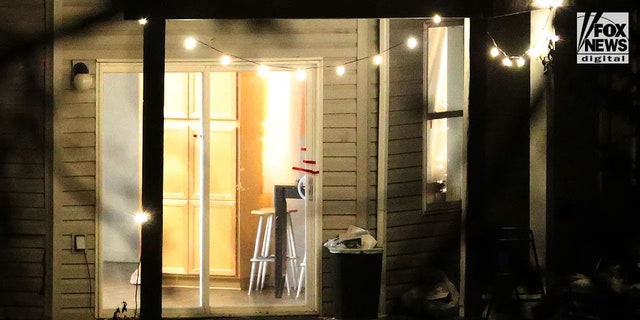
A witness, identified in the affidavit only as DM, allegedly heard crying from Kernodle’s room and a man saying, “It’s OK, I’m going to help you.” A short while later, police say she saw a masked man with “bushy eyebrows” leaving through a sliding door. A fifth housemate was also home at the time and not attacked.
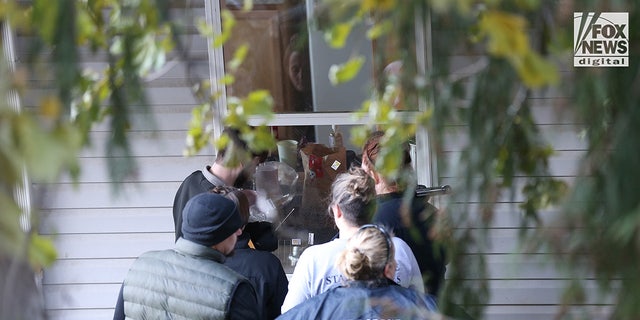
From there, police allege Kohberger took a meandering route home, avoiding the most direct path.
Roughly an hour after the murders, according to the affidavit, Kohberger’s white Hyundai Elantra appeared on surveillance cameras around Pullman and on the WSU campus.
Moscow police, with help from state agencies and the FBI, tracked Kohberger to the other side of the country, where he was arrested at his parents’ house in Pennsylvania on Dec. 30, 2022.
SUSPECT IN COURT
He has since been extradited to Idaho, where defense attorney Anne Taylor waived his right to a speedy preliminary hearing Thursday, asking the court to schedule it for the end of June.
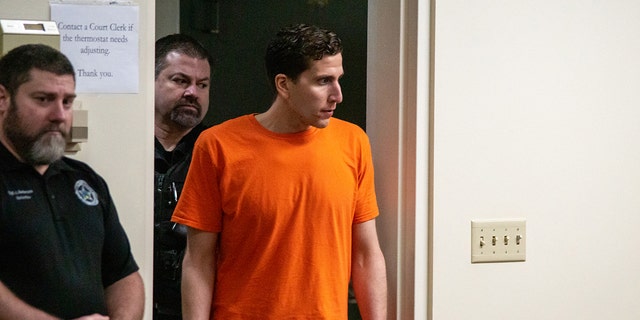
Latah County Magistrate Judge Megan Marshall granted her request after there was no opposition from Prosecuting Attorney Bill Thompson.
The hearing is scheduled to begin on June 26 at 9 a.m. and could take four to five days.
WATCH: Bryan Kohberger seen in first appearance in Moscow, Idaho court
Taylor reasoned that waiving the 14-day deadline would give her more time to review the evidence obtained through discovery, which she filed a boilerplate request for on Tuesday, according to court records.
DM would likely testify with Kohberger seated in court.
He could face the death penalty if convicted.
Fox News’ Paul Best contributed to this report.
Read the full article Here


